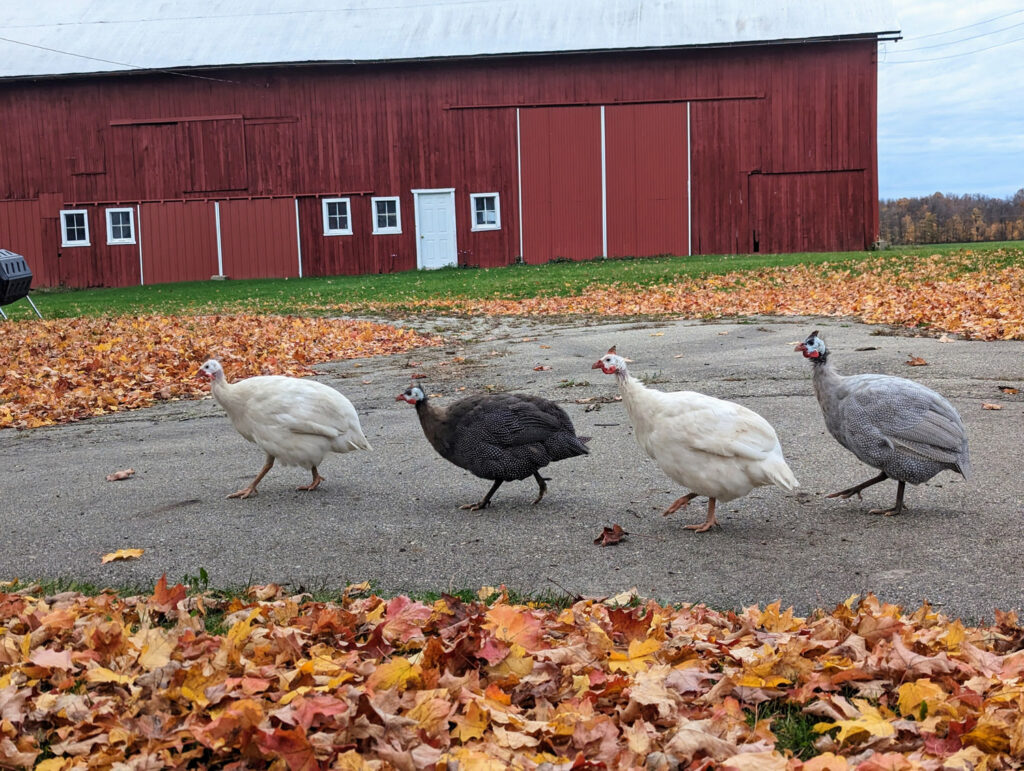DeWitt — Everyone has a trick to keep ticks away. For some, it’s white tape around the ankles. Others use chemical sprays. But at my farm, the strongest tool in the arsenal is a flock of goofy little birds called Guinea fowl.
Guinea fowl run wild in the forests of Africa and are raised for meat and egg production. They come in a variety of colors, but the most well known are pearls, with their polka-dot feathers. They have bright faces that look a little bit like clown makeup and big horns on top of the head like a German WWI helmet. Some people, myself included, find them striking, while others think they are ugly as sin. Nevertheless, they serve an important purpose on our farm: pest control.
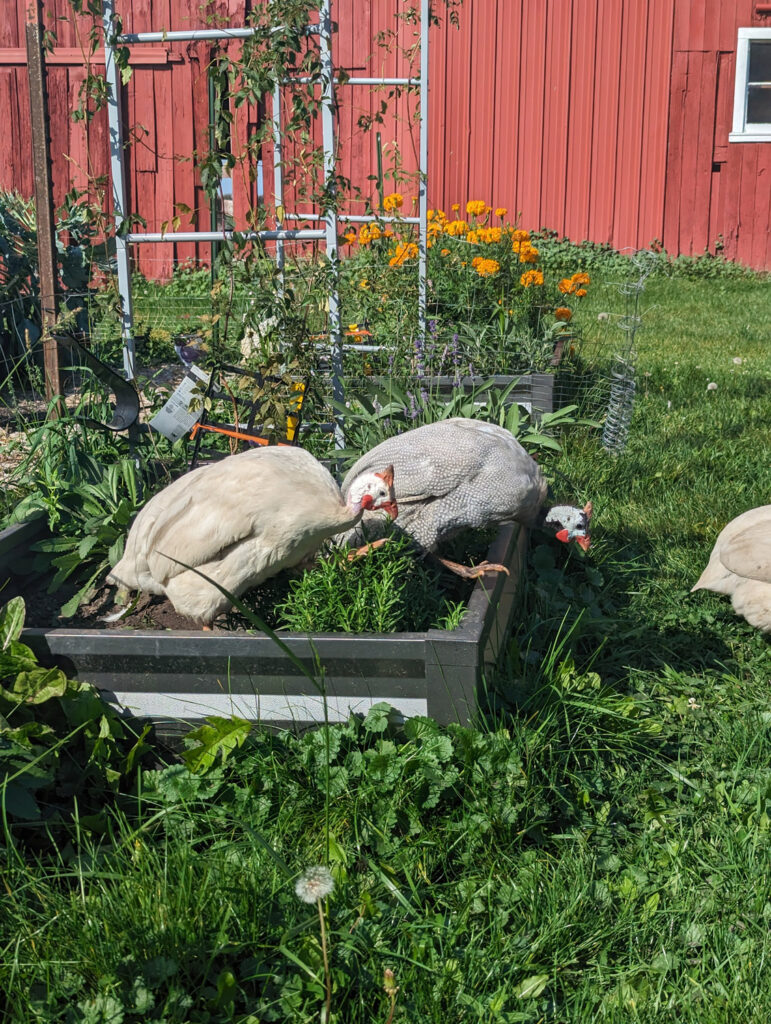
When we first moved to this property, we had a serious tick infestation. Any venture outdoors, even in newly cut grass, and we would end up finding ticks on us. After a little research on how to control ticks, we learned about the different sprays we could use, but the most effective one was incredibly poisonous to cats, so that wasn’t a good option. Another solution people suggested was to get a flock of guinea fowl. I had never heard of a guinea before, but I was willing to try just about anything to clear the bugs out.
Those who suggested guineas also included a disclaimer: They are very loud and can get annoying, so you better not have too many neighbors close by. “How loud can they be?” I thought. I would soon get my answer. They are noisy for sure, but you quickly get used to it once you see them in action.
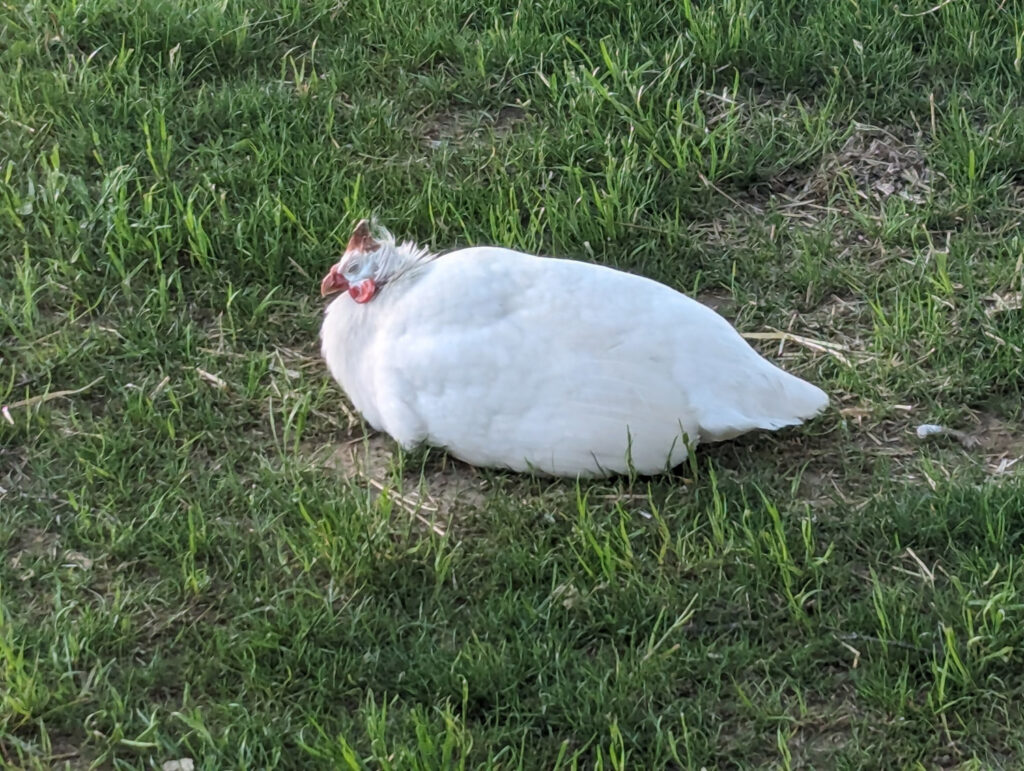
Our first flock came in the mail, and I’ve hatched about 20 more guineas since.
For most of the year, a flock of guineas will keep in close formation and walk around back and forth like a vacuum, scooping up several pounds of bugs each day. They roam far and wide, without regard for fences, borders, or roads. They choose to sleep in trees instead of a coop, even in bad weather. Then during mating season, they break off into pairs (guineas are monogamous, unlike chickens) and begin searching for spots to nest.
While chickens will lay in a nest of your choosing, guineas will go find a nice tucked away little spot under some tall grass or shrubs and build a little communal nest on the ground. They are quite good at hiding while they do this, so trying to harvest the eggs feels like a mix of hunting and searching for colored eggs on Easter.
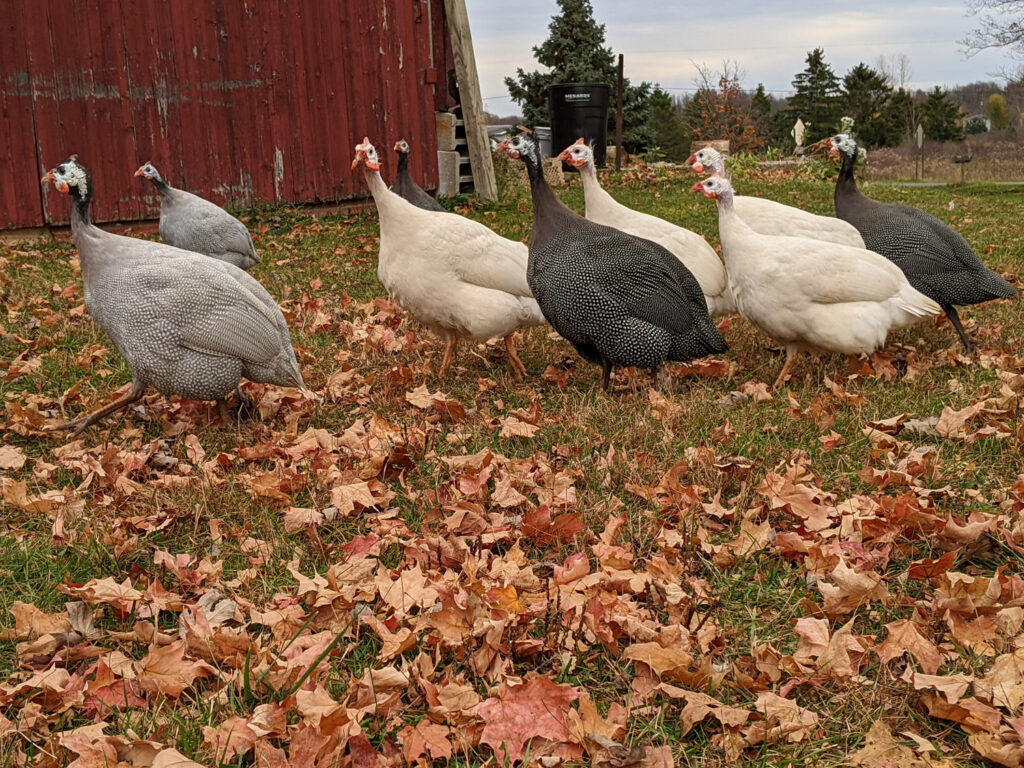
All the hens will lay their eggs in that nest until they build up a good-size clutch, then one hen will get broody and lay on it to raise some “keets.” So far, I haven’t had much luck getting a hen to raise her own young. They either get eaten or give up before the eggs ever hatch, so I usually end up incubating the eggs myself.
These are incredibly hardy birds. Despite being native to north Africa, they do surprisingly well during the Michigan winters. There was one day where it got so cold that all of the guineas decided to sleep in the barn with the chickens. All except one, who decided to stay outside to endure a snowstorm where the temps reached something like -17 with the wind chill.

I thought for sure I was gonna find a frozen bird in the morning, but to my surprise when I went to unlocked the coop, I found a perfectly happy little guinea pacing around waiting to get at the food.
The guineas are truly useful animals for us. Not only the ticks, but they eat all kinds of garden pests. They are also gentle on your vegetable plants and don’t dig into the soil the way chickens do, making them valuable assistants in the garden.
Their noisiness actually serves a purpose as well. They make terrific guard dogs and will start yelling their heads off any time a person or a predator animal shows up. They aren’t the smartest birds, though, and will also yell bloody murder at anything they don’t like, including a slight gust of wind.
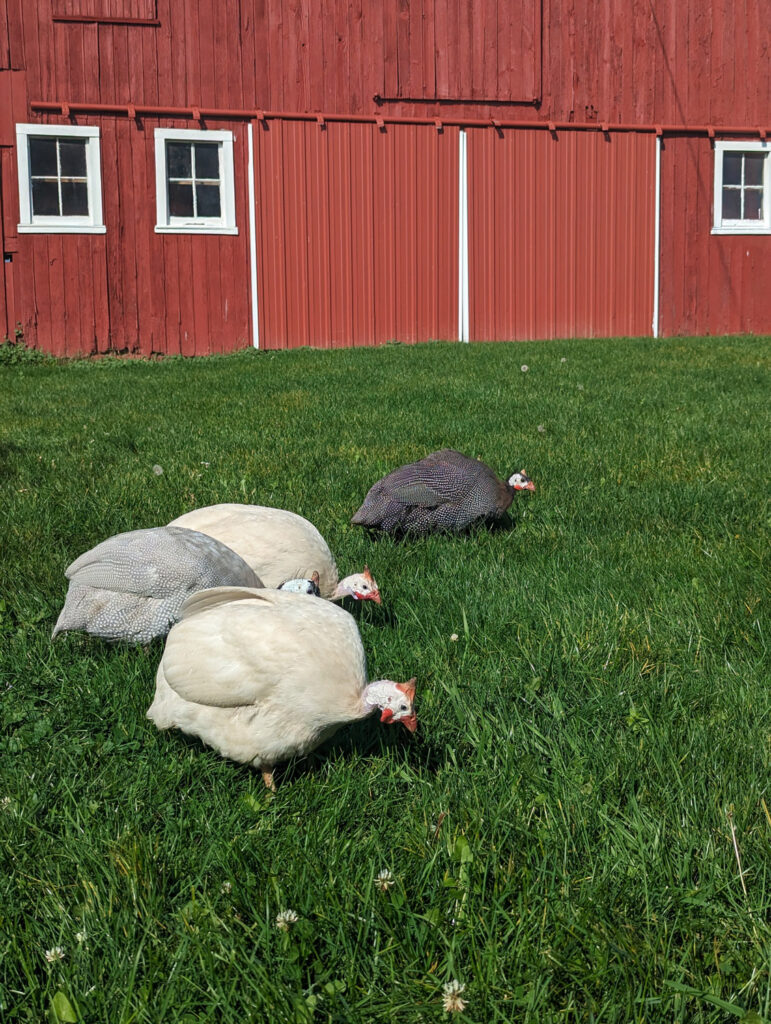
They also get preyed upon by all the usual suspects. Raccoons, foxes, and hawks will snatch up a guinea if given the chance. Between sleeping in a tree and venturing far into the thick brush, that independent spirit makes them much easier targets than chickens in a coop.
Some people may find them annoying, but I love having guineas. They’re useful, they’re funny, and I think they’ve been a great addition to our home. If I had my way, I’d breed and release enough guineas all over the country so that they’d be as common as Canadian geese.
They’d hoover up all the ticks in short order and allow us to get back to exploring the woods without fear of Lyme or alpha-gal. It just might just be a little noisier out there.
Wes Contangelo is a homesteader in Michigan.
